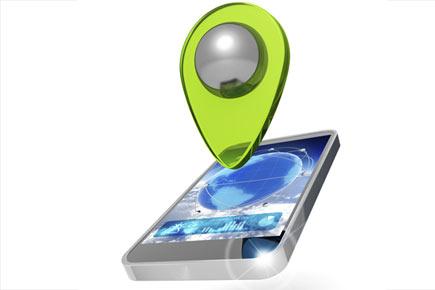On the birth anniversary of Roger L Easton, co-inventor of the Global Positioning System (GPS), we look at some interesting trivia about the man and his co-creation...

Global Positioning System (GPS) is a space-based satellite navigation system that provides location and time information in all weather conditions, anywhere on or near the earth where there is an unobstructed line of sight to four or more GPS satellites. The system created and maintained by the United States government, which makes it freely accessible to anyone with a GPS receiver, provides critical capabilities to military, civil, and commercial users around the world.
ADVERTISEMENT

Representational picture
The project began in 1973 to overcome the limitations of previous navigation systems. The plan was to integrate ideas from several predecessors, including a number of classified engineering design studies from the 1960s. The GPS system was developed by the members of the U.S. Department of Defense (DoD), which originally used 24 satellites and became fully operational in 1995.
Roger L. Easton is credited with inventing the Global Positioning System (GPS) along with Bradford Parkinson and Ivan A. Getting. Easton developed a time-based navigational system with passive ranging, circular orbits, and space-borne high precision clocks placed in satellites, which was tested with four experimental satellites: TIMATION I and II (in 1967 and 1969) and Navigation Technology Satellites (NTS) 1 and 2 (in 1974 and 1977). NTS-2 was the first satellite to transmit GPS signals.
Roger L. Easton was awarded the National Medal of Technology in 2006 by then US President George W Bush. On March 31, 2010, Easton was inducted into the National Inventors Hall of Fame and presented the NIHF Medal of Honor. During his career at the Naval Research Laboratory, Easton was awarded:
>> The Distinguished Civilian Service Award (1960)
>> The Institute of Navigation's Colonel Thomas L. Thurlow Navigation Award (1978)
>> The Naval Space Surveillance Center established the Roger L. Easton Science and Engineering Award (1991)
>> Magellanic Premium (1997)
>> 12th Sheikh Salam Al-Ali Al-Sabah Informatics Badge of Honor from His Highness, the Amir of Kuwait, for Easton's role as the "Prime Inventor of GPS" (2013)
GPS has become a widely deployed and useful tool for commerce, scientific uses, tracking, and surveillance and its accurate time facilitates everyday activities such as banking, mobile phone operations, and even the control of power grids by allowing well synchronized hand-off switching. Some notable fields where GPS is utilised include...
>> Amateur astronomy, astrometry and celestial mechanics calculations
>> Applying location and routes for automated vehicles to function without a human driver.
>> Cartography or the study and practice of making maps.
>> Cellular telephony: clock synchronization enables time transfer, which is critical for synchronizing its spreading codes with other base stations to facilitate inter-cell handoff and support hybrid GPS/cellular position detection for mobile emergency calls and other applications.
>> Disaster relief/emergency services: depend upon GPS for location and timing capabilities.
>> Geotagging: applying location coordinates to digital objects such as photographs (in Exif data) and other documents for purposes such as creating map overlays with devices.
Robotics: self-navigating, autonomous robots using a GPS sensors, which calculate latitude, longitude, time, speed, and heading.
>> Military service: Soldiers use GPS to find objectives, even in the dark or in unfamiliar territory, and to coordinate troop and supply movement. Various military weapons systems use GPS to track potential ground and air targets before flagging them as hostile. GPS allows accurate targeting of various military weapons including ICBMs, cruise missiles, precision-guided munitions and Artillery projectiles.
 Subscribe today by clicking the link and stay updated with the latest news!" Click here!
Subscribe today by clicking the link and stay updated with the latest news!" Click here!






